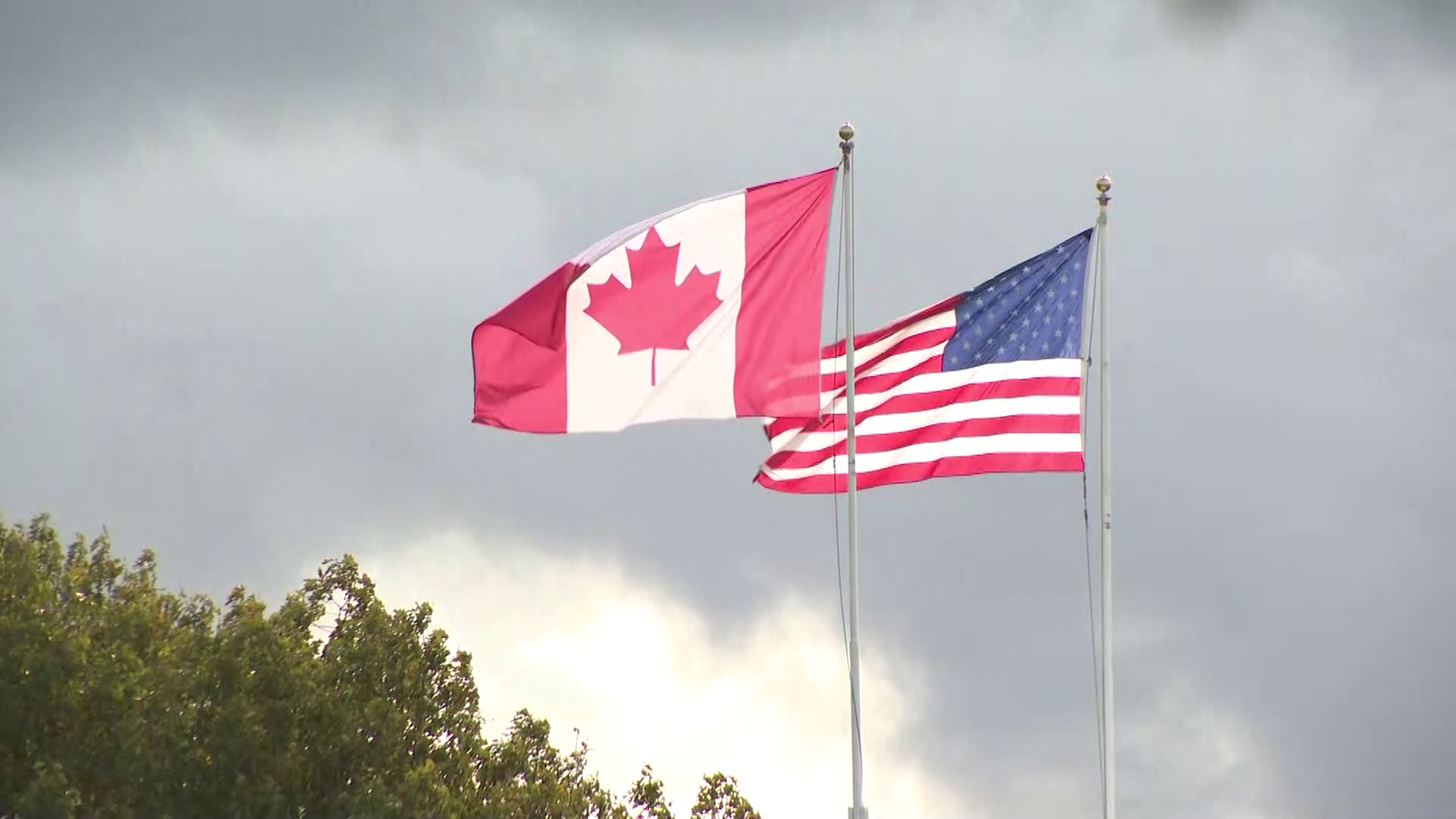Local News
B.C. business groups, politicians react to tariff announcement

U.S. President Donald Trump has followed through on his threats to slap tariffs across the board on Canadian imports — 10 per cent on energy imports and 25 per cent on everything else — and promises to respond to any retaliatory measures with stricter action.
Business groups and politicians are sharing their concerns.
Business groups respond
Greater Vancouver Board of Trade
The Greater Vancouver Board of Trade says many of its members will be impacted by these tariffs, and says everyone — not just those in affected industries — will be taking a financial hit.
“Canada is the main trading partner of 34 U.S. states; there is no doubt that these tariffs will hurt Americans and Canadians alike, burning a $1,000CAD hole in everyday people’s wallets, causing job losses, and hurting businesses on both sides of the border,” said GVBOT president and CEO Bridgitte Anderson.
“Canadian exports to the U.S. don’t just support trade; they create jobs, raise wages, and strengthen businesses on both sides of the border. Efficient cross-border supply chains make both countries more competitive and resilient to global shocks.
She goes on to say the two countries have ties that go beyond the economic.
“We share families, culture, and values and it is unwise to dissolve this centuries-old partnership.”
She also says the U.S. and Canada need to work collaboratively in dealing with border security issues and working to combat the effects of fentanyl.
In the meantime, she says there are steps we can take to keep local industry strong.
In order to deal with the threat posed by the tariffs, she says permitting processes should be sped up in order to get projects built.
By speeding up permitting, getting projects built, diversifying our markets, adopting new technologies, and tearing down interprovincial trade barriers we can make our economy more resilient and less dependent on the whims of the US administration.
“All levels of government must be laser-focused on implementing policies that focus on growing our economy, supporting the sale of B.C. products, and incentivizing investment into the province,” Anderson said.
“Many of our members will be impacted by these tariffs. In response, the Greater Vancouver Board of Trade has put together a list of resources to help businesses navigate these tumultuous times and launched a survey to gather real-life stories and data about how these tariffs will impact B.C. businesses.”
BC Chamber of Commerce
BC Chamber of Commerce president and CEO Fiona Famulak says Saturday’s news is “incredibly disappointing and deeply concerning.”
“These unnecessary and unreasonable tariffs will have significant consequences on B.C. businesses and will negatively impact workers and communities in every region of our province,” Famulak said.
“On behalf of the BC Chamber of Commerce, the 100 chambers of commerce and boards of trade in the province, and the 36,000 businesses that we represent, we understand a strong and determined response from government is required. I believe we need to stand united as a province and as a country to protect our nation’s interests.”
Many B.C. businesses have been working on strategies to mitigate the effects of tariffs ever since the initial threats were issued in November, she says.
“Not unlike during the pandemic, this is a time when businesses need to be nimble, plan forward, reduce costs, and explore opportunities to diversify their markets,” she said.
BC Lumber Trade Council
The BC Lumber Trade Council (BCLTC) calls the tariffs “a punitive, unjustified protectionist measure” that will harm both countries.
Kurt Niquidet, president of the BCLTC, points out that B.C. softwood lumber producers already face duties of 14.4 per cent on shipments to the U.S.
“Combined, these barriers will disrupt trade, raise costs for consumers, and threaten jobs and communities on both sides of the border,” Niquidet said.
He says the Canada-U.S. lumber trade is mutually beneficial.
“American demand exceeds domestic supply—requiring U.S. builders to import about thirty per cent of their lumber needs,” Niquidet said.
“Canadian producers fill most of this gap, ensuring a stable, predictable supply of quality lumber. Tariffs disrupt this essential supply chain, increasing building material costs, at a time when affordability is already a major concern for American families.”
Higher tariffs lead to lumber mill curtailments, job losses, and economic hardships for communities dependent on forestry.
Federation of Canadian Municipalities
The Federation of Canadian Municipalities (FCM) also weighed in on the situation, saying any response to the tariffs needs to be coordinated across all levels of government.
“Local governments have already been mobilizing,” said FCM president Rebecca Bligh.
“FCM, as the national voice of municipalities, has been working closely with federal and provincial partners and engaging with U.S. counterparts, including the U.S. Conference of Mayors and the National League of Cities, to defend local economies on both sides of the border.”
Assembly of First Nations
Assembly of First Nations National Chief Cindy Woodhouse Nepinak says she plans to travel to the U.S. this month to meet with Native American organizations to discuss the tariffs, as well as treaty and border mobility rights.
“We call on the federal government to ensure First Nations leadership is part of any Team Canada approach to trade and border discussions,” she said in a statement.
Politicians weigh in
Federal Conservative Leader Pierre Poilievre condemned the “massive, unjust and unjustified tariffs on Canada’s already weak economy” in a press release.
Poilievre reiterated his calls for Parliament’s return, advocating for dollar-for-dollar tariffs, an emergency tax cut, and other measures to support businesses, workers, and the economy.
Ontario Premier Doug Ford says on social media that he’s “extremely disappointed” the U.S. president “has chosen to walk away from a trading relationship that for decades has made life better for millions of workers on both sides of the border.”
“Canada now has no choice but to hit back and hit back hard,” said Ford, who has used the tariff threat as a justification for his snap election call.
Ford says the federal government has his full support to match U.S. tariffs dollar for dollar, adding the tariffs will put 450,000 jobs at risk in Ontario.
Federal Liberal Party leadership candidate Mark Carney says the tariffs “are a clear violation of our trade agreements and require the most serious trade and economic responses in our history.”
Carney says in a statement that Canada needs to face this challenge as a united team and that he supports dollar-for-dollar retaliatory tariffs “where they will be felt the hardest in the United States but will have the least impact in Canada.”
“At the same time, we need a co-ordinated strategy to boost investment and to support our Canadian workers through what will be a difficult moment.”
Alberta Premier Danielle Smith says she is disappointed by the looming tariffs on Canadian goods, including 10 per cent on Canadian energy.
Posting on social media, Smith claims the reduced tariff for energy was in part a recognition of her government’s advocacy.
Smith says she has pursued diplomacy in the face of tariff threats, including visiting Trump’s Florida home and Washington to defend cross-border energy trade.
With files from The Canadian Press.












